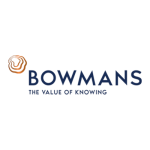David Geral and Bright Tibane, assisted by candidate attorneys Yehuda Rabinowitz and Wandile Mantanga, of Bowmans look at South Africa's newly ramped up approach to cryptoassets
There has been a significant increase in the use of cryptocurrencies in South Africa over the past five years. In September 2014 the National Treasury (NT), the South African Reserve Bank (SARB), the South African Revenue Service (SARS), the Financial Sector Conduct Authority (FSCA) and the Financial Intelligence Centre (FIC) jointly issued a public alert document. The Public Alert warned South Africans about the potential risks associated with the use of cryptocurrencies and advised members of the public to exercise caution when making use of crypto-related products. The Public Alert specifically stated that there was not at the time (and indeed there still is not) a specific or explicit cryptocurrency regulatory framework in South Africa. Given this, participants in the cryptocurrency market would have no legal protection or recourse to South African authorities.
Although it may have been an exaggeration to refer to "no legal protection", given that South Africa is a common law jurisdiction with well-established contractual and delictual principles, and also had and still has principles-based, "product agnostic" financial regulations, this message was clear. Citizens should exercise extreme caution while the government got to grips with the new phenomenon; they should not look to the government if things went horribly wrong.
Subsequent to the Public Alert, in December 2014 the SARB published a position paper on virtual currencies. In the 2014 Position Paper, the SARB stated that it does not oversee, supervise or regulate the cryptocurrency landscape, systems or intermediaries for effectiveness, soundness, integrity or robustness. Consequently, any and all activities related to the acquisition, trading or use of cryptocurrencies would be, and until now, are performed at the end user's sole and independent risk with no recourse to the SARB, for assistance or regulatory sanction.
|
|
South Africa does not currently intend to ban the buying, selling or holding of cryptoassets |
|
|
The Public Alert and the 2014 Position Paper both pointed out that the relevant authorities will continue to monitor and assess the use of cryptocurrencies and development in this regard. The 2014 Position Paper further indicated that the SARB reserved the right to change its position should it consider the landscape to warrant regulatory intervention.
In 2016, the Intergovernmental FinTech Working Group (IFWG) was established (comprising members from NT, the SARB, the FSCA and the FIC) with the purpose of developing a common understanding among South African regulators and policymakers of fintech developments as well as policy and regulatory implications for the financial sector and economy. Early in 2018, a joint working group was formed under the auspices of the IFWG to specifically review the position on cryptocurrencies. The working group is represented by the members of the IFWG and SARS, and is called the Crypto Assets Regulatory Working Group (CARWG).
In January 2019, the CARWG published a consultation paper containing policy proposals through which the CARWG seeks to develop regulatory responses to the emergence of cryptocurrencies. The CARWG followed a functional approach in that it assessed the economic functions of cryptocurrencies rather than the underlying technology applied or the entity involved. The following uses were identified: purchasing and selling; payments; capital raising through initial coin offerings (ICOs); crypto derivatives and funds; and market provisioning. The CARWG acknowledged that new uses may arise in future, and that it would take the same approach to such new cases.
The 2019 Consultation Paper points out that in order to achieve anti-money laundering / combating the financing of terrorism (AML/CFT) requirements in South Africa, more specific requirements will be necessary in line with the recent amendments to the Financial Action Task Force Recomm-endations. In light of this, it is proposed in the Consultation Paper that the FIC will include cryptocurrency service providers as "accountable institutions" within the ambit of South African AML/CFT legislation (ie the Financial Intelligence Centre Act, 2001).
The relevant provisions of the FIC Act will require cryptoasset service providers to meet the following obligations:
All cryptoasset service providers would need to register with the FIC; conduct customer due diligence, including ongoing monitoring; keep applicable records; and file reports on suspicious and unusual transactions, on cash transactions of ZAR25,000 (approximately $1,815) and above, and on the control of property that is suspected (or known) to be linked to terrorist activity or terrorist organisations.
As accountable institutions they would need to apply a risk-based approach in their implementation of measures to meet the above requirements. This includes the ability to distinguish between different categories of risk and to apply enhanced customer due diligence where business with customers is deemed as higher risk, and simplified customer due diligence where business with customers is deemed as lower risk.
The IFWG noted that there are numerous possible future risks which include risks associated with monetary policy, the national payment system and financial stability. The IFWG has elected to deter regulatory responses to such risks until such time they materialise. Consequently, the IFWG has decided to focus its attention on what it considers to be risks that have already materialised, which include a lack of consumer protection, possible AML/CTF abuses, circumvention of the South African exchange control regime and the consequent increase of undetected illicit financial flows, inaccurate balance of payments data, illicit purchases (stemming from the anonymity or pseudonymity associated with cryptoassets), tax evasion and the lack of market integrity.
South Africa does not currently intend to ban the buying, selling or holding of cryptoassets, or to ban cryptoassets for payments. However, because cryptoassets are not recognised as a currency, customers are perceived to be exposed to harm in an unregulated environment. The decision not to ban the use of cryptoassets is, however, based explicitly on the existing landscape and current levels of adoption, acceptance and use of cryptoassets. South African authorities have reserved the right to amend their policy stance should cryptoassets pose a material risk to their respective regulatory mandates.
The IFWG and CARWG have agreed on the following objectives for a cryptoassets regulatory framework:
Ensure the safety and efficiency of the financial system and financial institutions.
Ensure consumer and investor protection.
Minimise opportunities for regulatory arbitrage.
Combat the circumvention of exchange control rules and regulations.
Combat illicit financial flows, money laundering and the financing of terrorism.
Combat tax evasion and impermissible tax avoidance arrangements.
Support financial inclusion efforts and the advancement of technological innovation in a responsible and balanced manner.
The regulatory response by South Africa to cryptoassets will be undertaken in line with the principles stipulated below:
Risk-based approach: Regulatory actions will be undertaken in a manner and intensity that are commensurate with the level of risks posed while balancing potential benefits, also taking into account developments and requirements of relevant standard-setting bodies. The South African authorities do, however, reiterate their responsibility to the safety, stability and integrity of the wider financial system given the societal benefits associated with ensuring such stability and integrity.
Technology-neutral and primarily principles-based: In general terms, principles-based regulation is proposed, that is, fewer detailed, prescriptive rules, and more high-level, broadly stated principles. Principles may be supported by more detailed regulatory rules and standards, where appropriate. The regulatory frame-work will be based on the specific activity or function performed, rather than the specific entity or the type of technology used.
South African regulatory authorities propose not to impose market entry conditions for registered entities at this stage.
Further, it is proposed in the 2019 Consultation Paper that an appropriate regulatory framework be developed in three phases:
Phase 1: Registration process for crypto-currency service providers.
Phase 2: Review of existing regulatory frameworks followed by new regulatory requirements or amendments to existing regulations.
Phase 3: Assessment of regulatory actions implemented.
The 2019 Consultation Paper points out that a useful starting point for regulatory intervention at this stage would be registration. The objective would be to gain further specific insights from market participants. According to the 2019 Consultation Paper, the cryptocurrency service providers that will require registration are cryptocurrency trading platforms or any other entity facilitating cryptocurrency transactions; cryptocurrency digital wallet providers (custodial wallets); cryptocurrency safe custody service providers (custodial services); cryptocurrency payment service providers; and merchants and service providers accepting payments in cryptocurrency.
The 2019 Consultation Paper states that the details of the registration process will be set out in a policy paper to be published by the SARB in 2019. Members of the public and any impacted stakeholders are invited to provide comments on the consultation paper by February 15 2019. A copy of the Consultation Paper is available at http://www.treasury.gov.za/comm_media/press/2019/CAR%20WG%20Consultation%20paper%20on%20crypto%20assets_final.pdf
Notwithstanding that there is currently no explicit cryptocurrency regulatory framework in South Africa, cryptocurrencies may trigger the current (traditional) regulatory framework if they have characteristics similar to currently regulated financial instruments in South Africa, such as securities, derivatives, collective investment schemes and electronic money, as defined by the applicable legislation. Whether cryptocurrencies have characteristics similar to those of currently regulated financial instruments in South Africa is a factual question. Consequently, it is advisable to look at the attributes of each cryptocurrency on a case by case basis, comparing them with the currently regulated financial instruments and working out if they fall within or outside the definitions of those financial instruments.
It is noteworthy that the 2019 Consultation Paper identifies exchange control infringement as one of the immediate risks warranting regulatory intervention. South African residents (corporates and individuals) are subject to exchange control restrictions which affect their ability to move capital outside South Africa and South African residents need to abide by those restrictions even when they deal in cryptocurrencies.
Regulation 10(1)(c) of the Exchange Control Regulations, 1961 (Exchange Control Regulations), made pursuant to the Currency and Exchanges Act 1933, provides that no person may enter into any transaction in terms of which capital or any right to capital is directly or indirectly exported from South Africa, unless such export has been expressly approved by the Financial Surveillance Department (FinSurv) of the SARB or an Authorised Dealer in foreign exchange (Authorised Dealer).
The transfer of cryptocurrency held in a South African wallet to an offshore wallet or the transfer of cryptocurrency from a South African resident to a foreign resident offshore may potentially amount to the "export of capital" in terms of regulation 10(1)(c).
This does not, however, mean that cross-border transactions pertaining to crypto- currencies are prohibited; rather it means that a South African resident needs exchange control approval in order to move their cryptocurrency offshore. The practical challenge is that the SARB is currently not prepared to allow FinSurv and Authorised Dealers to approve cryptocurrency transactions. The SARB expressly stated in the 2014 Position Paper and a public statement available on its website (Public Statement) that it does not currently oversee, supervise or regulate cryptocurrencies. Consequently, even if a South African resident were to apply for exchange control approval to effect a cross-border transfer of cryptocurrencies offshore, no approval could or would be granted.
|
|
This is expected to present a measure of flexibility for parties in the cryptoassets industry to innovate lawfully |
|
|
Furthermore, the Currency and Exchanges Manual for Authorised Dealers (Authorised Dealers' Manual) issued pursuant to the Exchange Control Regulations, contains, amongst other things, permissions and conditions applicable to transactions in foreign exchange that may be undertaken by Authorised Dealers and/or on behalf of their customers. Transactions that do not fall within the powers of Authorised Dealers provided in the Authorised Dealer Manual must be referred to FinSurv for special approval.
In practice, South African exchange control residents regularly transfer crypto-currencies from local to offshore wallets through cryptocurrency exchanges (without exchange control approval). The fact that the SARB is aware of these transactions but does not currently enforce regulation 10(1)(c) in the context of cryptocurrencies and takes no steps to prevent them, indicates that for the time being the SARB informally tolerates the market practice.
However, in light of the apparent discrepancies between black letter regulation and regulatory practice, transferors of cryptocurrencies, and the service providers who facilitate, incentivise or reward the conduct, should remain abreast of regulatory developments and act with prudence.
In terms of the Authorised Dealers' Manual, a South African-resident individual is permitted to transfer offshore a total amount of up to ZAR10 million per calendar year for investment purposes (Foreign Capital Allowance). In addition, a South African-resident individual is permitted in terms of the Authorised Dealers' Manual to avail of a single discretionary allowance amount within the limit of ZAR1 million per calendar year (Single Discretionary Allowance). The Single Discretionary Allowance may be used for any legitimate purpose (including for investment purposes abroad as well as the sending of gift parcels in lieu of cash, excluding gold and jewellery).
In the Public Statement, the SARB stated that currently the only permissible avenue for purchasing cryptocurrencies offshore is through the utilisation of the Foreign Capital Allowance and/or Single Discretionary Allowance. Because the Foreign Capital Allowance and Single Discretionary Allowance are available to individuals and not to institutions/corporates, only private individuals can transfer funds offshore for the purposes of trading/investing in cryptocurrencies offshore, subject to the above limits. For the avoidance of doubt, the Foreign Capital Allowance and/or Single Discretionary Allowance cannot be transferred offshore in the form of a cryptocurrency. The transfer must be in the form of actual money.
The transactions within the Foreign Capital Allowance and Single Discretionary Allowance are required to be processed through Authorised Dealers (and to certain limited extent, through Authorised Dealers with limited authority), who have an obligation to report the transactions to FinSurv through FinSurv's Reporting System.
Separate from the above process, the Conduct of Financial Institutions Draft Bill (COFI Bill) has been published for comment. The COFI Bill contains provisions that allow a financial institution to be exempted from the application of the proposed Act (or a part, provision or requirement of the proposed Act) in the discretion of the relevant regulator, in order to provide scope for innovation, the development and investment in innovative technologies, processes and practices. This is expected to present a measure of flexibility for parties in the cryptoassets industry to innovate lawfully, albeit subject to a negotiated, bespoke regulatory framework while the industry is still developing.
About the author |
||

|
|
David Geral Head of banking and financial services regulatory, Bowmans Johannesburg, South Africa T: +27 11 669 9514 W: www.bowmanslaw.com/lawyer/david-geral/ David Geral is the head of Bowmans' banking and financial services regulatory practice and is co-convenor of the fintech sector service line at Bowmans. He specialises in pensions, healthcare and insurance. David advises local corporations, private and industry retirement funds, medical schemes and their service providers on governance, contracting, compliance and dispute resolution, as well as on matters before the High Courts and specialist tribunals. David has BA and LLB degrees from the University of Cape Town. He holds a certificate in impact investing in Africa from the University of Cape Town and is a leading attorney in relation to impact investing, social impact bonds and environmental, social and governance related (ESG) investing in South Africa. He is a CEDR Accredited Commercial Mediator and a notary. |
About the author |
||

|
|
Bright Tibane Senior associate, Bowmans Johannesburg, South Africa T: + 27 11 669 9521 E: bright.tibane@bowmanslaw.com W: www.bowmanslaw.com/lawyer/bright-tibane/ Bright Tibane is a senior associate in our Johannesburg office's banking and finance department. Bright specialises in financial services (including fintech regulation), securities, insurance, investment funds and banking regulations. Bright regularly advises clients, both local and international, on the application and implications of the Financial Advisory and Intermediary Services Act, 2002; the Collective Investment Schemes Control Act, 2002; the Banks Act, 1990; the Financial Intelligence Centre Act, 2001 (being anti-money laundering legislation in South Africa); the National Credit Act, 2005; the Long-Term Insurance Act, 1998; the Short-Term Insurance Act, 1998; and the Currency and Exchanges Act 9 of 1933 (along with the regulations to and host of subordinate legislation promulgated under these legislation), among other things. Bright has an LLB from the University of Limpopo and an LLM from the University of the Witwatersrand. |

